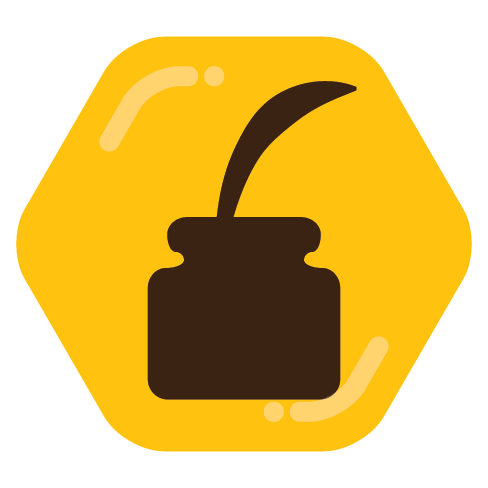Silent-G
- 3 Posts
- 3 Comments
Any tips people can throw out are always welcome.
Whatever is going to work for you will probably be specific to you, but I think a good place to start is to read more stories. Try to nail down what it is you want to achieve with your story, and then find other stories that have succeeded at that, at least in your opinion. There are rules and tropes and formulas to storytelling that will make it easier to entertain readers, but at the end of the day, if you don’t like what you wrote, and you didn’t enjoy writing it, then I don’t think it’s worth it.
In my experience, once you start reading a lot, you start thinking more like a writer. You’ll be watching a movie or a show and be thinking “How would I write this scene, how would I describe this to someone who wasn’t watching it, and how would I do that in a way that they got the same feeling I got when I was watching it?” or “How would I improve this story, in what ways did it fail to give me the feeling I was seeking?” or “How could I incorporate some of these same narrative devices in my story, what is it that I like about this and how can I convince people that they like my story for the same reasons?”
You’ll especially start asking yourselves these questions when you know you have a good story, and you’re obsessed with getting your story on to paper. You’ll start filtering everything you experience through the lens of that obsession, and every piece of media you consume will become a piece of the collage you create.
At least that’s how it is for me, maybe you’re completely different.
In the past, I would have an idea for a story and attempt to start writing it start to finish with barely any notes on where I wanted the story to go or any kind of outlining. I would have it all in my head and try to fool myself into thinking I could finish writing an entire novel just by only writing what needed to be written and not wasting any time anywhere else. This is why I’ve never finished any large writing project, and any writing I’ve considered “finished” is usually under 5,000 words. I would either get bored because I didn’t have a clear goal written down, or I would give up because I decided the story wasn’t good enough.
Now, after becoming obsessed with my latest story idea, and hyping myself up and convincing myself that I WILL finish writing a novel, I’ve learned that in order for that to happen I need a lot more tools and organization than what I was previously trying to do. I’ll start by doing brain dumps any time I have any amount of inspiration, this allows me to quickly put down what I want to happen in the story without needing to describe what is actually happening in the story. It’s fun to go back to these pages after I’ve written a section and see what’s changed from then to now. I now have a lot more appreciation and understanding for why certain Star Wars characters originally had very different concepts and stories (Han Solo/Jaba original concepts).
After getting all of my ideas out, I then like to organize them. I’m currently using Fabula cards on a digital board called miro. Not trying to shill, but just to show you what the cards are, here’s the link: fabuladeck.com It took me a lot of time to understand that using a story formula to write doesn’t necessarily mean your story is formulaic, and if I want to attempt to subvert any expectations while also not upsetting my readers, I first have to understand what people expect in a story. I’ve also been reading “Save the Cat Writes a Novel” to try to get a deeper understanding of storytelling. I’ve always had good instincts when it comes to storytelling, but I’ve learned that I can’t completely rely on my instincts and I have to learn from people who have been doing this much longer and much more successfully than I have. I also have a copy of Ursula K. Le Guin’s “Steering the Craft” which I hope will also give me some more useful tools.
After I have everything organized the way I like, then I feel like I can start actually writing what I want people to read. I try not to think too much about it being perfect and only focus on writing it good enough that I can come back later and edit it to make it perfect. I have to remind myself that the editing process might take just as long as the writing process, so I shouldn’t waste too much time trying to edit while I write.
On top of all of this, I’m constantly filtering anything I consume through the lens of my story. I know that if I stop being obsessed with it, I will give up on it like all of my other projects, and as a result I’m constantly thinking of ways to include themes and character types from other stories that I enjoy.



True. I have to remind myself that that’s what’s so great about any art form; the audience’s unique interpretation of it. Everyone is going to see something differently, and each perspective is (in most cases) valid.